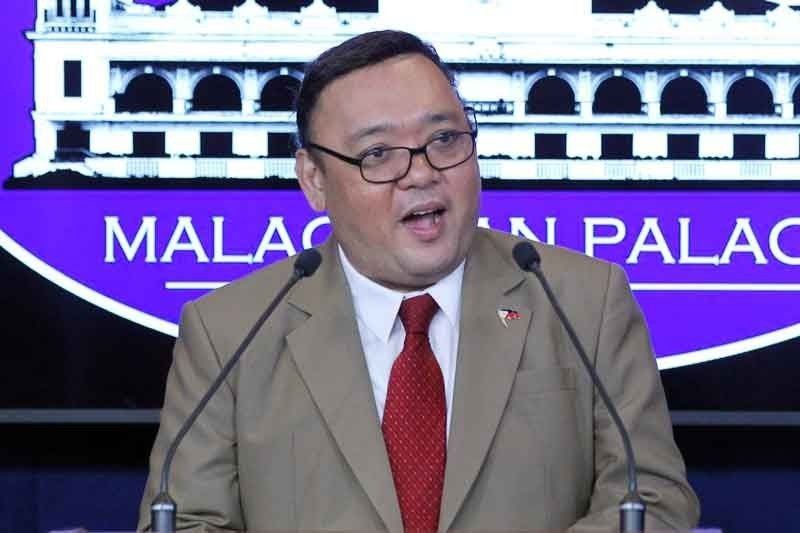Country under GCQ except Metro Manila, 2 others

Central Luzon provinces seek stricter quarantine
MANILA, Philippines — The country will be under less restrictive general community quarantine (GCQ) except for Metro Manila, Cebu City and Laguna beginning tomorrow, Malacañang made it clear yesterday, even as some provinces and at least one major city in Central Luzon have asked to be placed under stricter modified enhanced community quarantine or MECQ.
Malacañang, through spokesman Harry Roque Jr., made the clarification amid confusion over the quarantine status of many areas in the country after today’s lifting of the Luzon-wide lockdown first enforced on March 17 to check the spread of the coronavirus disease 2019 (COVID-19).
As announced by the Palace on Monday, only Metro Manila, Cebu City and Laguna will remain until May 31 under ECQ, although in a modified form.
Roque’s clarification also came after the Inter-Agency Task Force on the Management of Emerging Infectious Diseases (IATF) met on Wednesday to further discuss guidelines for the gradual easing of quarantine restrictions in most parts of the country.
He said the IATF amended its previous Resolution No. 35 to stipulate that highly urbanized cities and independent component cities classified as low risk areas will be under GCQ by tomorrow.
“You will now see that the entire Philippines is under the ‘yellow’ (category). All are now under general community quarantine, except Metro Manila, the province of Laguna and Cebu City which are under modified ECQ,” he said.
The terms being used now are “for simplicity purposes” until IATF guidelines for following modified GCQ become available, Roque said.
He said the public is still strongly encouraged to follow quarantine and health regulations such as wearing of face masks, social distancing and avoiding mass gatherings.
The IATF has approved Resolution No. 36 containing guidelines for the implementation of MECQ.
It is also reviewing the request of Pampanga and Bulacan to be included in areas under MECQ.
Also under review is Laguna’s request to be classified under GCQ instead of MECQ.
Bulacan and Pampanga are among five Central Luzon provinces and one city seeking to remain under stricter quarantine or MECQ beginning May 16 even if they have already been downgraded to GCQ. There are six provinces in Central Luzon. Only Tarlac and Olongapo City have not contested their GCQ status.
The regional IATF said local officials themselves have recommended having their jurisdictions placed under MECQ, citing “high number of COVID-19 tests pending, low percentage of tested cases and necessity of preparation and transition from ECQ to GCQ.”
Central Luzon directors of the Department of the Interior and Local Government (DILG) and the Department of Health (DOH) signed the recommendation.
The RIATF noted a previous position that “the local chief executives are in better positions to assess the local situation in their respective areas of responsibility with regard to their LGU’s capabilities and threat status.”
‘Physically close’
Meanwhile, the Supreme Court (SC) announced that courts in Metro Manila and other areas under MECQ will remain “physically closed” until May 31.
“All the courts in the areas under MECQ shall remain physically closed to all court users until 31 May 2020 and may be initially reached only through their respective hotline numbers, email addresses and/or Facebook accounts as posted on the website of the Supreme Court,” Chief Justice Diosdado Peralta said.
“All inquiries on cases or transactions, including requests for documents and services, shall be coursed and acted upon only through the said numbers, addresses and accounts of the concerned court, or through the Judiciary Public Assistance Section of the Supreme Court in accordance with A.C. 28-2020. No walk-in requests shall be entertained in any of the offices of the courts in the said areas,” he added. Official transactions are from 9 a.m. to 3 p.m. Monday to Friday.
He said courts may still solemnize civil weddings, provided the number of witnesses and guests shall not exceed five persons.
As for the SC, it would continue to hold special sessions anytime deemed necessary, either in person or through videoconferencing.
With the easing of some quarantine restrictions, the Department of Human Settlements and Urban Development (DHSUD) said it is elated by the IATF decision to allow the resumption of activities in the housing sector.
“This will greatly benefit the millions of Filipino workers who have temporarily lost their jobs and sources of income since the start of the ECQ,” Human Settlements Secretary Eduardo del Rosario said in a press statement.
The IATF has included the housing sector in the list of “priority public and private construction and infrastructure projects” that may proceed in areas under MECQ.
Del Rosario had earlier written a letter to the IATF recommending the resumption of construction works as well as buy-and-sell activities in the housing and real estate industry.
“This resumption of real estate activities is very timely and huge to revitalize the construction industry which is key in pump priming the national economy,” Del Rosario said.
Del Rosario pointed out that the real estate industry employs about four million Filipinos, or about five percent of the country’s total work force, while about 1.5 million individuals are engaged in buying and selling of real estate.
Real estate developers and those engaged in the house buy and sell activities had earlier expressed concern that further lockdown on their business will drain their corporate resources which can lead to “heightened unemployment due to massive downsizing.”
The government suspended construction and infrastructure projects upon the implementation of the ECQ in March to prevent the spread of COVID-19. Ding Cervantes, Evelyn Macairan, Elizabeth Marcelo
- Latest
- Trending





























